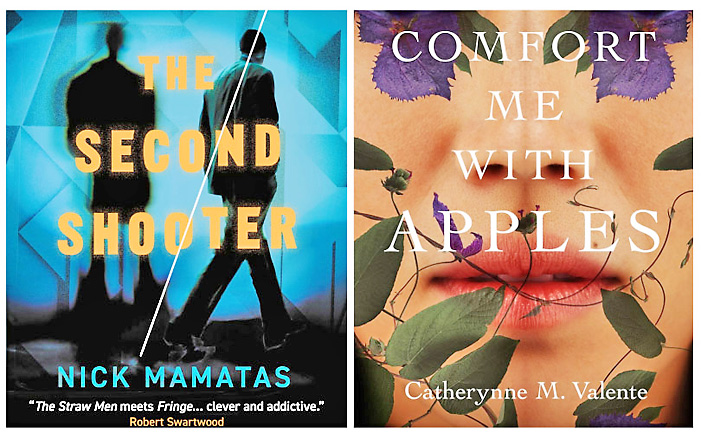Silvia Moreno-Garcia & Lavie Tidhar
THE WASHINGTON POST – Few modern writers have captured paranoia like Philip K Dick.
The once-obscure pulp writer who churned out dime-store paperbacks has become, after his death, one of Hollywood’s most adapted writers, a mainstay of the Library of America and a prophet for our paranoid times.
But what other writers grab us with tales that toy with the very idea of reality?
Silvia: My first Philip K Dick novel was Do Androids Dream of Electric Sheep? (1968), which was famously adapted into the film Blade Runner.
But I remember finding Flow My Tears, the Policeman Said (1974) years later and that set off a binge of 1970s science fiction.
To summarise Flow My Tears: A famous singer wakes up one morning and nobody knows him. Has he gone mad or is something strange afoot?

Nick Mamatas’ The Second Shooter (2021) is the perfect novel for people who like Twin Peaks and The X-Files.
It’s the grimy tale of a writer penning a book about the “second shooter” phenomenon: witnesses of assassinations claiming they saw an unidentified second attacker.
Mamatas has a firm grip on contemporary culture and conspiracy theories and an even firmer understanding of the morally dubious losers who make noir worth reading.
Even without a speculative element, it would still be a good book, but the bizarreness the main character discovers places it firmly in paranoid Philip K Dick territory.
Lavie: Philip K Dick’s Roog, the very first story he sold, may also be his best. It’s about an old dog who guards the trash from garbage collectors; the dog believes there is a wrong in the world, a wrong only he can see.
That perfectly captures the sense not just of paranoia but the helplessness that comes with it.
I also highly recommend Anne R Dick’s The Search for Philip K Dick (2010) for anyone interested in the life of the writer, though it can make for a harrowing read at times.
HP Lovecraft was another unfortunate (he famously survived on unheated cans of beans) who took paranoia to a cosmic level with such classics as The Shadow Over Innsmouth.
I recently read Ian Culbard’s graphic novel adaptation of Lovecraft’s At The Mountains of Madness (2010), published by the terrific independent British publisher SelfMadeHero, and it’s a must-read. The art is fabulous, and the story builds perfectly as it heads into icy horrors.
Silvia: Comfort Me With Apples (2021) by Catherynne M Valente follows a woman who lives an idyllic life in a gated community with the perfect husband – until she opens a drawer, finds a seemingly ordinary hairbrush and begins to question her happy marriage.
Gothic fiction is rife with paranoia, and here Valente modernises the old-fashioned “what’s up with my husband” question that many heroines in dusty castles pondered.
The novella also brings to mind Ira Levin’s classic The Stepford Wives (1972), in which a woman suspects there is something deeply troubling about the submissive wives in her new neighbourhood.
The Memory Police (2019) by Yōko Ogawa, translated by Stephen Snyder, differs from the rest of the books on this list because the protagonist is not really dismayed by the strange events overtaking her life.
The inhabitants of an isolated island live under an oppressive regime that causes mass amnesia. People “forget” that certain things existed, and once they forget, those things disappear from the world.
It feeds into that paranoid feeling that reality is being changed around you, like the so-called Mandela Effect, a theory of shared false memory (like Tom Cruise wearing sunglasses during his dance scene in Risky Business).
Lavie: I know I talked about Boris and Arkady Strugatsky in our last column, but their 1970 novel The Dead Mountaineer’s Inn, translated by Josh Billings in a Melville House edition in 2015, is another must-have. It begins as an Agatha Christie-like whodunit, but then things get weird …
If you’re eagerly anticipating the series Shining Girls, starring Elisabeth Moss, the novel it’s based on, by South African author Lauren Beukes – about a time-travelling serial killer set in Chicago – is as good as you’d expect.
A title I’m really looking forward to this year is The Impossible Us by Sarah Lotz, a master of the high-concept thriller.
Here she’s taken a left turn into a love story that spans two alternate worlds – think Phillip K Dick meets The Lake House. As an unashamed lover of the The Lake House, I mean this as high praise.



















































